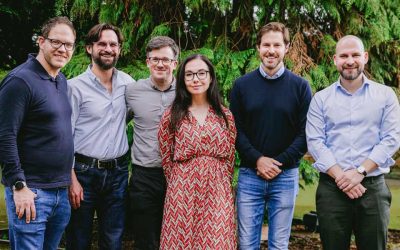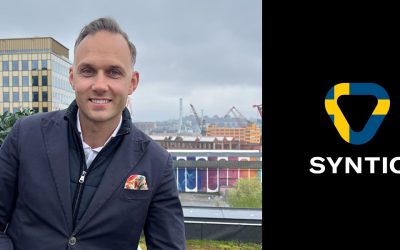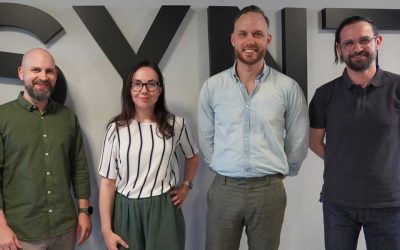In today’s rapidly evolving business landscape, organizations are recognizing the significance of sustainable management not only for environmental and social reasons, but also for its positive impact on overall efficiency.
By adopting cultural guidelines such as knowledge development, fostering a sense of community, and upholding integrity and agility, coupled with sustainable management practices such as collaboration, gender diversity, transparency, anti-corruption policies, and information security, businesses can unlock their full potential and drive towards success. We will delve deeper into how these aspects contribute to increasing efficiency within organizations, using Syntio as an example. Last week, at the Faculty of Economics, part of the University of Zagreb, our head of finance Lana Vucinic presented a lecture which provided students with insights into the practical implementation of the Governance aspect of the ESG concept during the “Summer Starts with ESG” project organized in collaboration with Zagrebačka Banka.
To thrive in a competitive environment, continuous learning and knowledge development are vital. To that aim, Syntio encouraging their employees to enrol in courses like the PowerMBA programs, obtain certifications, and attend conferences, enabling them to stay updated with the latest industry trends and best practices. This knowledge empowers employees to make informed decisions, find innovative solutions, and contribute to the overall efficiency of the organization.
Building a strong sense of community within the workplace has proven to be beneficial for employee engagement, collaboration, and overall productivity. Hand in hand with that are cultural practices like All-Hands meetings held every quarter, and online Teams groups that provide platforms for effective communication, idea sharing, and problem-solving. By creating an inclusive and supportive environment, Syntio harnesses the collective intelligence and diverse perspectives of its workforce, leading to enhanced efficiency and better outcomes.
Integrity and agility are essential qualities for sustainable management, as Lana emphasized in her lecture. Organizations that prioritize ethical conduct and transparent practices gain trust from stakeholders, fostering long-term relationships and better their reputation. Embracing a different approach to traditional management styles, characterized by flexibility, adaptability, and the ability to respond swiftly to changing market dynamics, enables us to seize opportunities and overcome challenges more efficiently.
Effective collaboration is a cornerstone of sustainable management. Encouraging cross-functional collaboration, breaking down silos, and promoting knowledge sharing among employees and departments fosters a culture of teamwork and synergy. Leveraging diverse expertise and perspectives makes us able to streamline processes, improve decision-making, and drive innovation, ultimately increasing efficiency across the board.
Studies have shown that gender-diverse teams lead to better performance and increased innovation. By striving for a balanced workforce composition, we tap into a wider talent pool and benefit from diverse viewpoints, problem-solving approaches, and creative thinking. This diversity fosters a more inclusive and dynamic work environment, contributing to higher efficiency and productivity.
Transparency is crucial for maintaining trust and accountability within an organization. In Syntio, we do it by Implementing anti-corruption policies and practices ensuring ethical conduct, and reducing the risks associated with fraud or unethical behaviour. Furthermore, prioritizing information security safeguards sensitive data and protects against cyber threats, ensuring uninterrupted operations and therefore, maintaining efficiency.
The impact of sustainable management goes beyond environmental and social aspects; it empowers organizations to thrive in a rapidly changing business landscape and achieve sustainable growth.






